* Deputy Consul General of Germany to New England, German Consulate, 3
Copley Place, Boston, MA 02116.
Proceedings: Alexander von Humboldt’s Natural History Legacy and Its Relevance for Today
2001 Northeastern Naturalist Special Issue 1:1-2
ALEXANDER VON HUMBOLDT’S NATURAL
HISTORY LEGACY AND ITS RELEVANCE
FOR TODAY – OPENING REMARKS
LUTZ H. GÖRGENS *
Boston and Humboldt have developed a wonderful bond. After the
precedent of 1869, when the largest celebration in the Western hemisphere
of Humboldt’s 100th birthday took place in this city, it is only
fitting that we convene here in 1999 at Boston University for the most
important American celebration of the Bicentennial of his voyage to the
Americas.
The German Consulate is particularly grateful to Boston University,
to its President, Jon Westling; to its Chancellor, Dr. John Silber; and to
the Director of its Center for Ecology and Conservation Biology, Tom
Kunz; to his deputy, Chris Schneider; and to his assistant, Kelly White,
for hosting this symposium.
Today, we celebrate more than a Bicentennial. We attempt more than
a scientific reappraisal of a great man. After a troubled century, we may
return to Humboldt’s enlightened political optimism. His view of German-
American relations was described, in 1847, by John Lloyd
Stephens, then director of the U.S. Ocean Steamship Company, as
follows: “[...]between the U.S. and Germany, there never could be any
feeling of rivalry, or any cause of collision, and the closer we could be
drawn together, the better it would be for both countries.”
As we prepare for the new millennium, I am happy to recommend
this Humboldtian analysis to all architects of transatlantic relations.
For an alumnus of Düsseldorf’s Humboldt-Gymnasium, named after
both Wilhelm and Alexander von Humboldt, this is a proud moment.
When I met in September 1997 with Ingrid and Joerg-Henner Lotze and
Gerhard Kortum, in the lodge of the Humboldt Field Research Institute
at Eagle Hill, Maine, the plan of today’s symposium was first conceived.
When the Lotzes met with Tom Kunz in January of this year,
plans for the bicentennial symposium were finally set in motion. I would
like to solicit your applause for their ingenious and efficient cooperation.
This week, the Boston Public Library opened an exhibit on “Mapping
Boston.” Mapping was definitely Humboldt’s area of interest. This
2 Northeastern Naturalist Special Issue 1
morning, I saw the huge display in front of the BPL, featuring an old
German map of this city, from 1776, engraved in Leipzig by Frentzel
when Humboldt was a 7 year-old boy. The map describes the position of
American and British forces around Boston Harbour, “wo das Wasser
bei Fluth bis 15 Französishche Fuß steight.” Isn’t this wonderful? A
description of an American city, in German language, in French measurements.
This is truly Humboldtian!
We are aware that precisely 200 years ago, Alexander von Humboldt
was not yet in the United States, but in Venezuela. From there, he
traveled to Colombia, Ecuador, Peru, Mexico, Cuba, and the US.
I am happy to introduce to you the Consul General of Venezuela, the
Hon. Lic. Armando González Angarita.

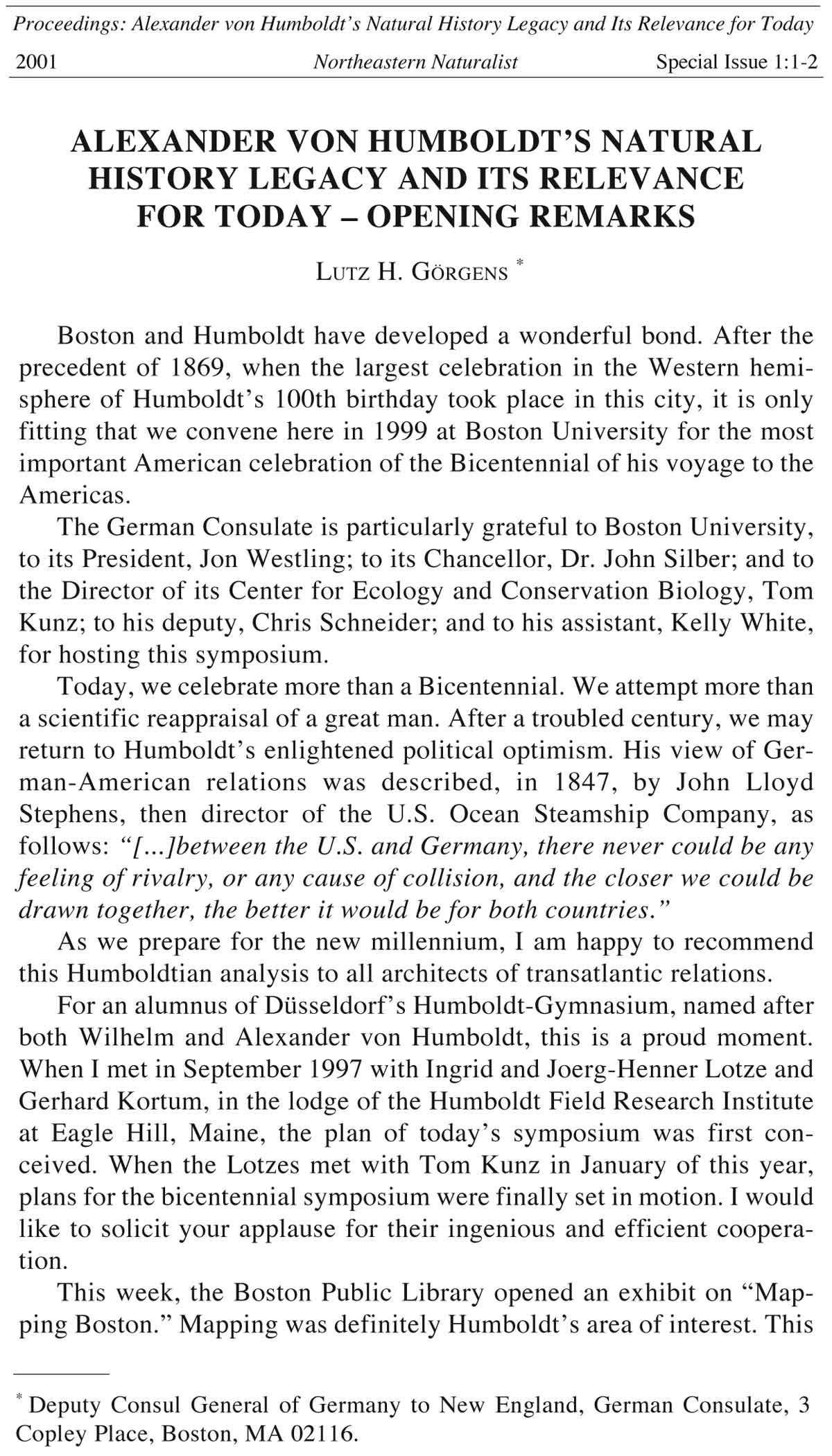
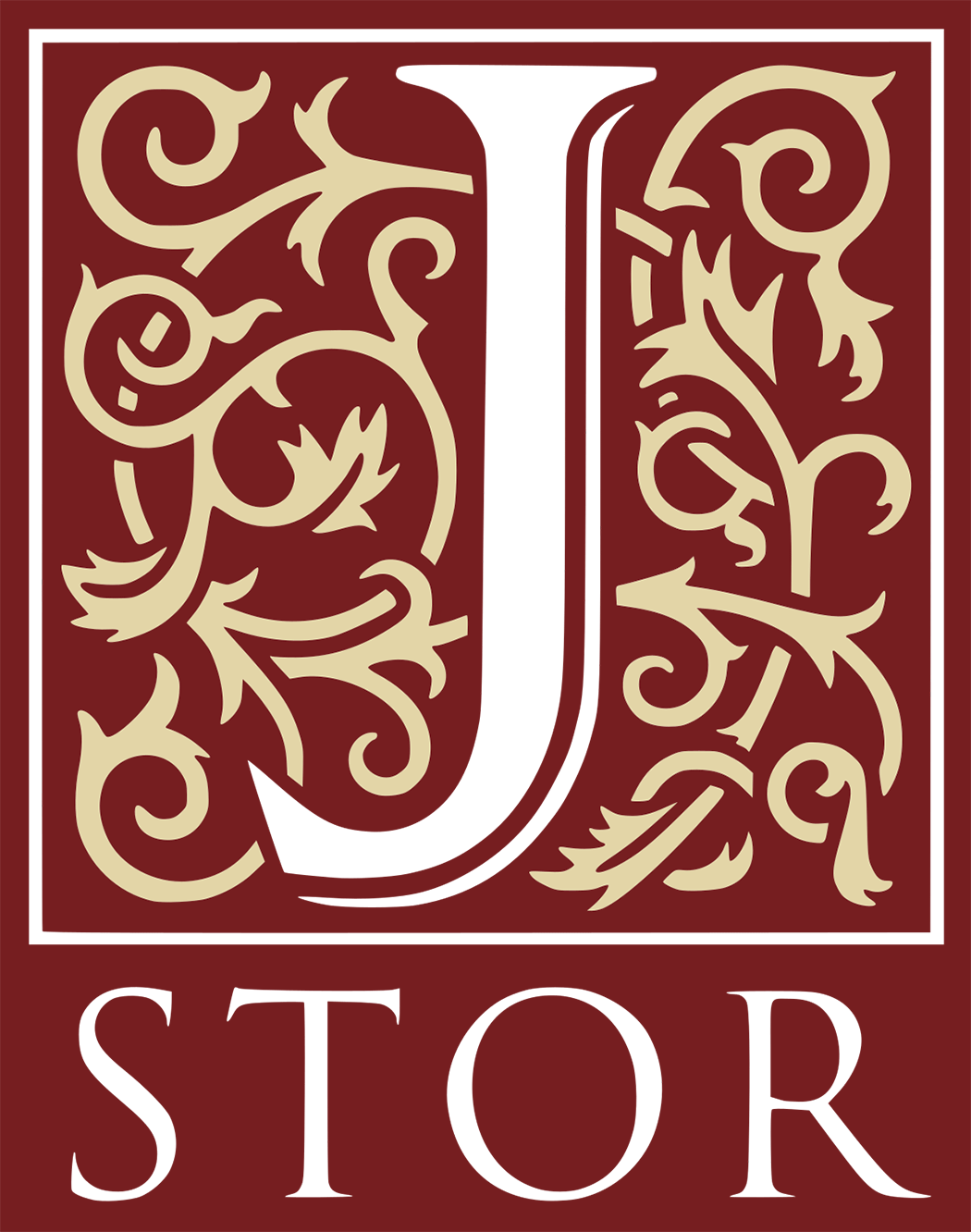



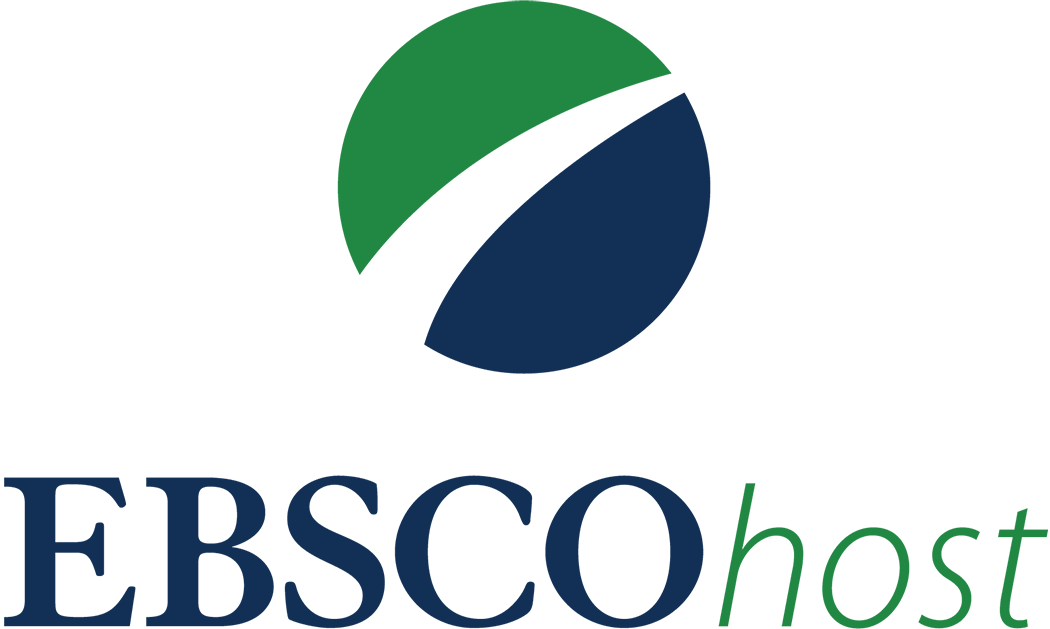

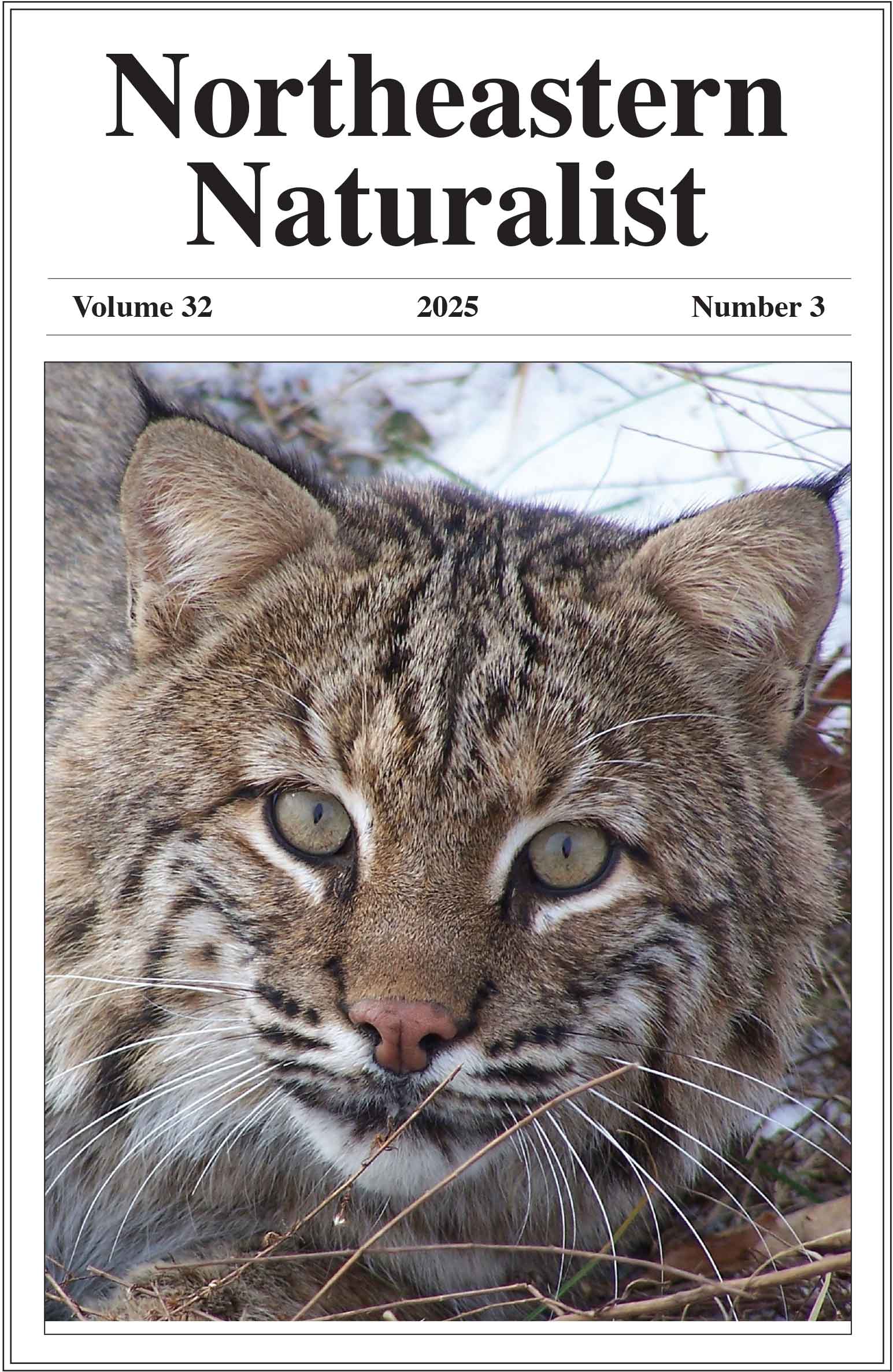
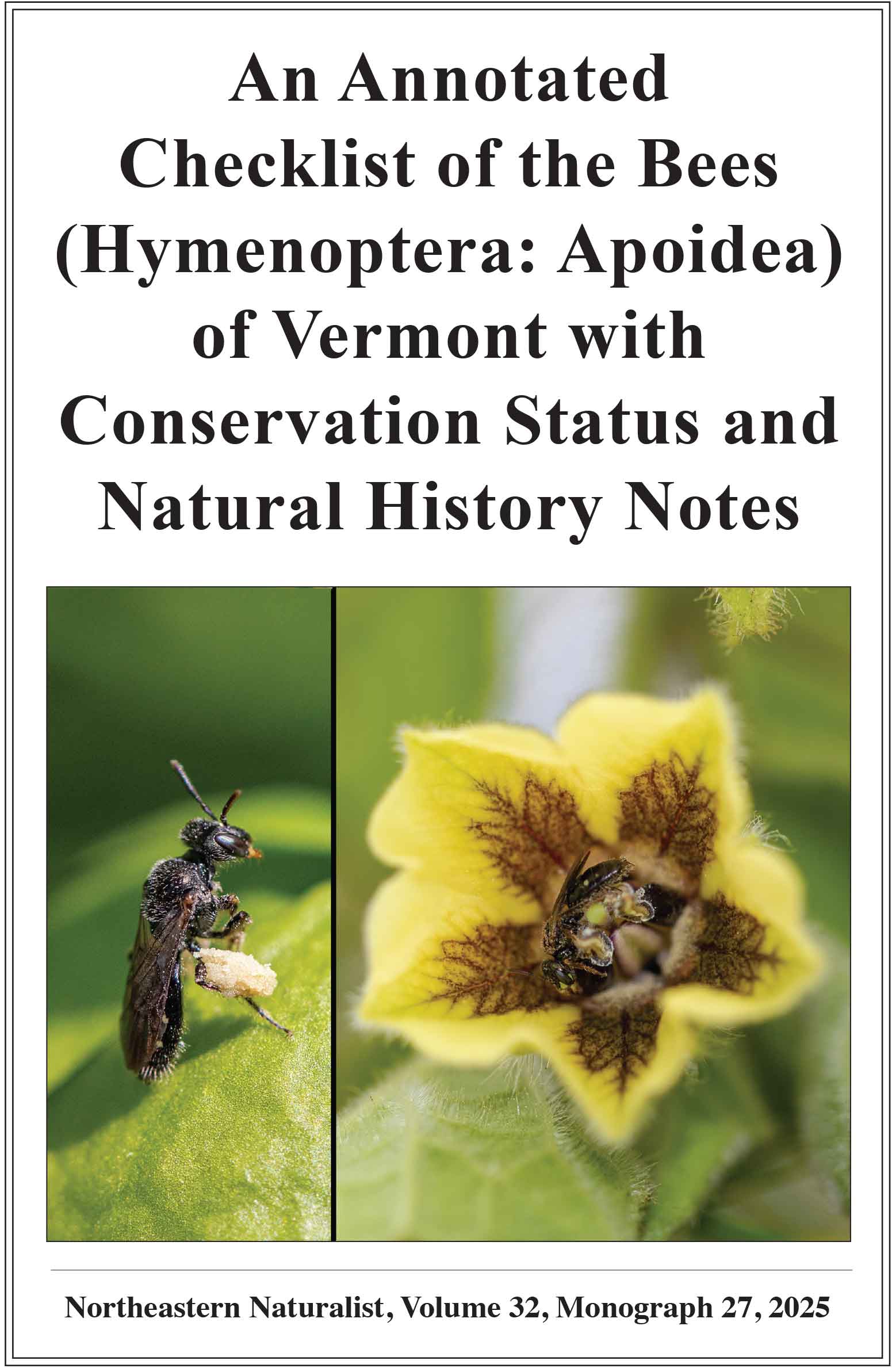



 The Northeastern Naturalist is a peer-reviewed journal that covers all aspects of natural history within northeastern North America. We welcome research articles, summary review papers, and observational notes.
The Northeastern Naturalist is a peer-reviewed journal that covers all aspects of natural history within northeastern North America. We welcome research articles, summary review papers, and observational notes.